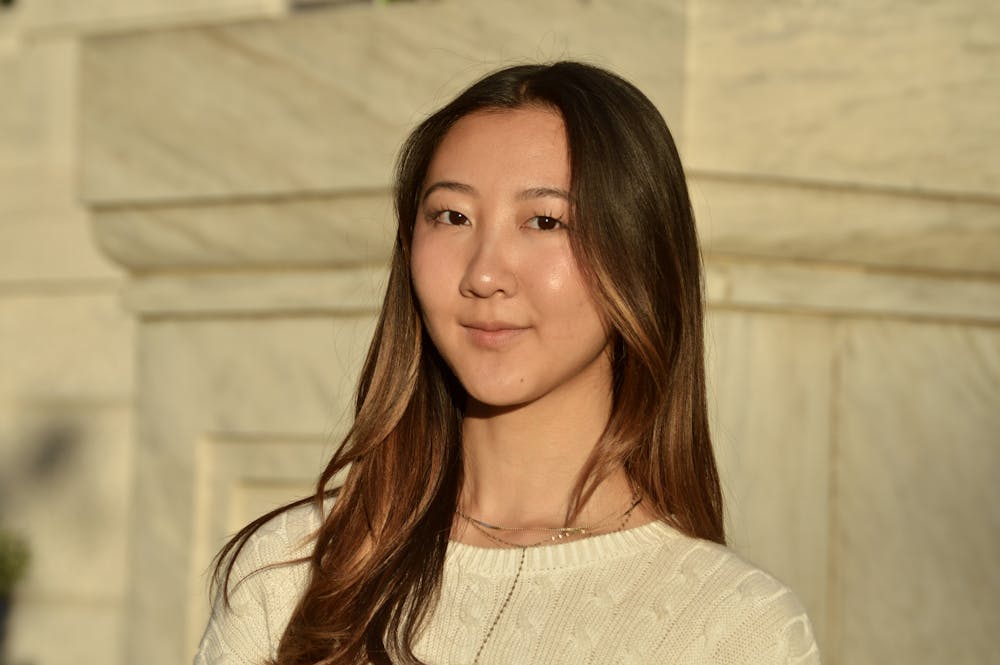The following piece is an opinion and does not reflect the views of The Eagle and its staff. All opinions are edited for grammar, style and argument structure and fact-checked, but the opinions are the writer’s own.
As a kid, I came out of every sci-fi movie with two takeaways: One, computers will take over the world, and two, I better be nice to them in case they come to life. The underlying theme of these movies, to be wary of artificial intelligence, was repetitive and predictable, even for a child. But a plot twist I would have never expected is humans as undercover villains actively contributing to an AI takeover.
To my 10-year-old self’s relief, the reality of a technological “takeover” is not a gigantic robot attacking civilians. Instead, the takeover is perpetuated by human over-reliance on technology. People use AI for unnecessary reasons, making them incapable of performing simple tasks on their own. People say AI is replacing our jobs, but AI cannot act on its own and isn’t the only mechanism at fault.
That being said, the takeover has quickened its pace, with AI evolving rapidly and generative AI becoming one of the fastest user-adopted technologies. AI anxiety, or the stress individuals feel about the influence of AI’s presence, is felt by 65 percent of employees. Especially since the development of ChatGPT, Meta Instagram or Snap-Bot on Snapchat, it has become too easy for people to use the technology for any minor inconvenience.
Although some AI use is free, it comes at the cost of codependency. Besides its common uses, such as data compilation, instructions for tasks and schoolwork, people have been turning to AI chats for tasks that require more human nuance. Depending on AI as a source for comedy, stories, advice and therapy — roles thought to be safe from AI— puts entertainment and healthcare at as much risk as administrative tasks.
Getting a quick laugh out of jokes with friends and comedy shows suddenly turned into reading AI-generated comedy. This quick dopamine rush from the comfort of one’s own home may become the new normal, if humans choose not to spend time and effort socializing or watching comedy shows. What’s worse, is that generated jokes can tickle more funny bones, or be more appreciated, than the jokes comedians took hours to write. This also applies to AI-generated stories that may take 10 seconds to create, compared to novels that take authors years to write. Creativity and art, the core of our humanity, is being threatened because we are choosing AI over human creation.
Aside from arts and entertainment, it is predicted by the U.S. Career Institute that professions such as therapists, psychiatrists and other mental health practitioners have the lowest risk of automation by artificial intelligence. However, these predictions are not guaranteed, depending on how humans continue to use this technology. Currently, recent trends on TikTok have influenced some individuals to talk to their AI chatbots as a form of therapy rather than going to a friend or licensed professional. Such escalation is incredibly harmful not only to the professionals affected but also to people who may lose their capability to socially connect and empathize with others.
AI is currently replacing jobs that humans are completely capable of, but soon, humans may become incapable of completing those tasks due to their codependency. AI quickly gained traction because of its convenience and efficiency, but abusing it can lead to declining attention spans and laziness. We are losing the ability to comprehend ideas and think for ourselves because we allow AI to do it for us. In the long run, overdependence on AI will gradually make us incompetent at any job, giving AI a perfect path to a takeover.
While it is easy to give into the temptation of quick fixes for our problems, we must become more intentional with our use of AI. We must ask ourselves, will this technology benefit us in the long run, or only offer temporary solutions? Technology is useful and essential to humankind, but its impact depends on how it is used–replacing human interaction, art and creativity crosses the line. The AI takeover of jobs may seem like a larger-scale issue, but can be tackled from the bottom up. Individuals must consciously use AI to assist in tasks, rather than having tasks done in their entirety. We must pause to see if human interaction is being replaced through repeated use of AI, in order to understand whether our decision will disadvantage our futures and how we can lessen the potential threats of AI.
Sara Shibata is a junior in the School of Public Affairs and School of Communication and a columnist for The Eagle.
This piece was edited by Alana Parker, Rebeca Samano Arellano and Abigail Turner. Copy editing done by Luna Jinks, Nicole Kariuki and Ella Rousseau.





